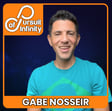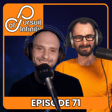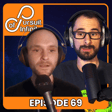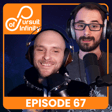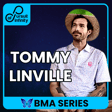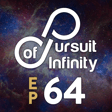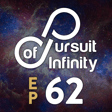
48. Interconnection, Dreams, and Myth
In this week’s episode, we discuss new and old philosophies, myth, symbols, dreams, Jung vs. Freud, and much more. The conversation launching point is a discussion about what’s called the Gateway Experience. The Gateway Experience is an easy to follow series of video tutorials geared toward showing you how to start experiencing natural altered states of consciousness that can open the doors for deep meditation and astral projection. Joe has given this a try with great results and since recording this episode I have it a try as well. I did the introductory video, which is the first of I think 32. I definitely see its potential and want to dive deeper, but as I mentioned, Joe has tried it and describes his experience here.
_________________
Music By Nathan Willis RIP
Follow Pursuit Of Infinity:
www.PursuitOfInfinity.com
Discord: https://discord.io/pursuitofinfinity
YouTube: https://www.youtube.com/channel/UCPpwtLPMH5bjBTPMHSlYnwQ
Spotify: https://open.spotify.com/show/58he621hhQ7RkajcmFNffb
Apple Podcasts: https://podcasts.apple.com/ca/podcast/pursuit-of-infinity/id1605998093
Instagram: https://www.instagram.com/pursuitofinfinitypod/
Patreon: Patreon.com/PursuitOfInfinity



